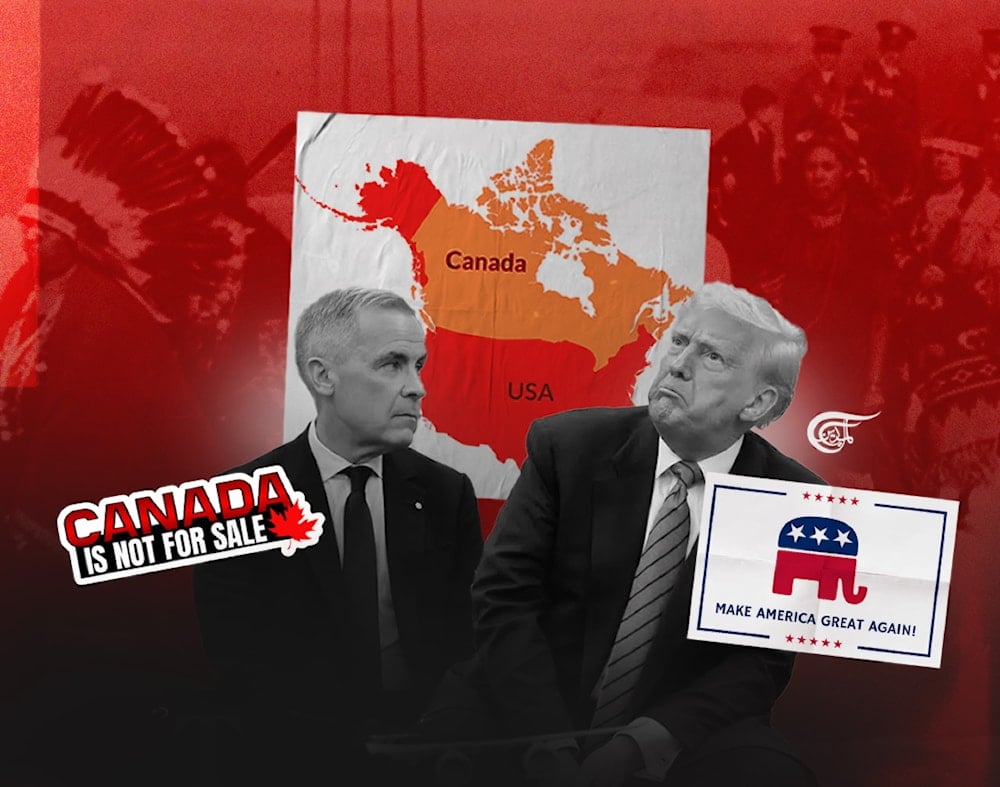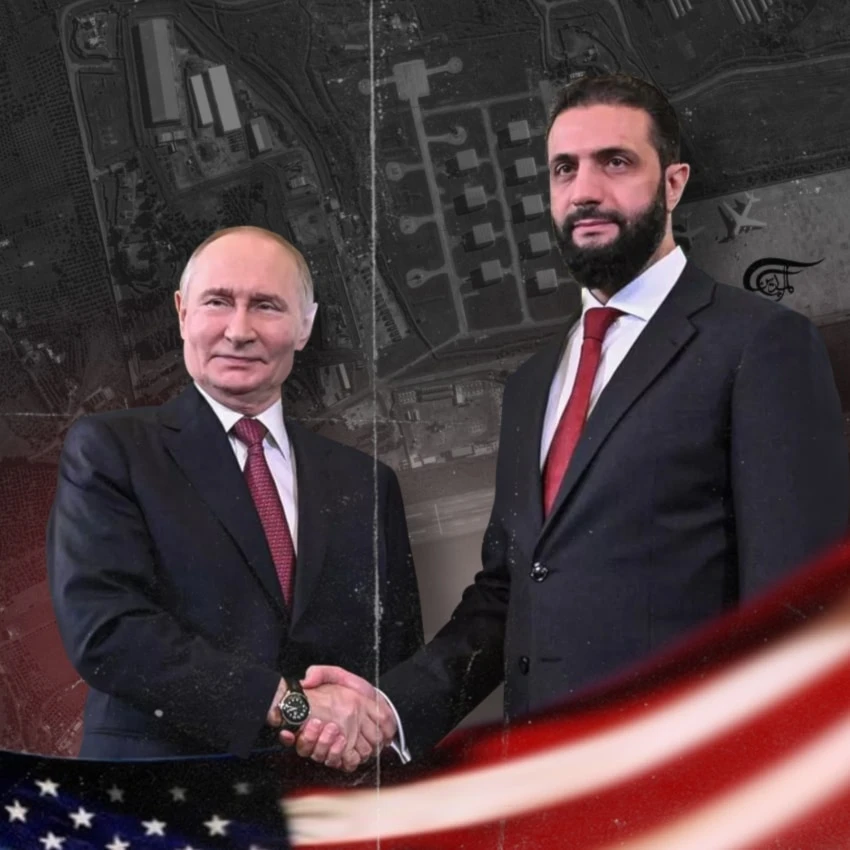Trump’s threats and the dangers of national outrage in Canada
What makes expressions of Canadian patriotism problematic is that they blur the thin line between “harmless” patriotism and nationalism.
-

Trump’s threats and the dangers of national outrage in Canada (Illustrated by Zeinab al-Hajj for Al Mayadeen English)
US President Donald Trump’s repeated threats to annex Canada and his trade war against the northern neighbour have really done a number on Canadians, who are pushing back with ubiquitous public expressions of patriotic fervour.
Passersby on the streets of Toronto are donning “Canada Is Not For Sale” hats, popularised by Ontario’s conservative premier Doug Ford when he wore one in a meeting in reaction to Trump’s proposition to make Canada the 51st US state, and T-shirts featuring the slogan “Elbows up”, a sports reference to a Canadian hockey great that has become a rallying cry against US tariffs.
It seems one cannot walk past a store window these days that does not broadcast Canadian patriotism. Upon entering a Dollarama chain store, you will be greeted by a framed poster in the colour and design of the Canadian flag, which reads “Proudly Canadian".
In order to expel any confusion as to what that sentence might mean, underneath it says, “100% founded and operated by Canadians.” Why is this information relevant?
Some of these declarations of national pride don’t even make sense: the streaming service Crave makes a point of proclaiming to be “Proudly Canadian” on billboards which advertise the second season of “The Last of Us”, an American drama series based on an American video game franchise.
This begs the question: What makes a streaming service Canadian, and why is that important?
Self-identifying progressives are also participating in this flag-waving jingoism we in Germany call Hurrapatriotismus. In Toronto’s gentrified Dundas Street West area, you will find vintage shops displaying “Proudly Canadian-owned since…” signs, as if the duration of Canadian proprietorship has any relevance to the quality of the wares one is selling.
The thin line between patriotism and nationalism
Coming from Germany with its genocidal history of obsession with racial purity and where the idea of shop windows displaying signs that say “Proudly German-owned” or “100 % founded and operated by Germans” remains rightfully unacceptable, I find these proclamations of Canadian pride to be deeply disturbing.
They instantly remind me of the iconic Schopenhauer quote: “The cheapest sort of pride is national pride; for if a man is proud of his own nation, it argues that he has no qualities of his own of which he can be proud.”
While expressions of Canadian patriotism are not new, the frequency and the way they are phrased, employing the language of otherisation and highlighting one’s national purity (which insinuates that foreign influences are dilutive), are a direct reaction to Trump’s economic war-mongering and expansionist overtures.
What makes them dangerous is that they blur the thin line between “harmless” patriotism and nationalism. Signs that say “Proud to be 100% Canadian” on the windows of stores, bars, and restaurants quickly become less about voicing opposition to an economic or geopolitical injustice (tariffs and annexation) and more about propagating one’s own perceived national superiority.
Dressed in the language of purity, statements like these seek to homogenise and quantify something as unquantifiable as a national identity and are all too often indistinguishable from racial supremacist rhetoric.
Violating Indigenous sovereignty
Pride in an artificial construct, such as the nation state, is problematic in itself, as Benedict Anderson successfully argues in his seminal work “Imagined Communities: Reflections on the Origins and Spread of Nationalism”:
“The nation is imagined as a community, because, regardless of the actual inequality and exploitation that may prevail in each, the nation is conceived as a deep, horizontal comradeship. Ultimately, it is this fraternity that makes it possible, over the past two centuries for so many millions of people, not so much to kill, as willing to die for such limited imaginings.”
In a Canadian context, that “deep, horizontal comradeship” is downright oppressive because those who are espousing pride in their nation are predominantly the descendants of European settlers who refuse to acknowledge the violent colonisation and ongoing theft of lands from their original Indigenous inhabitants and custodians.
Doug Ford’s governance is a salient embodiment of this colonial hypocrisy, lamenting the attack on Canadian sovereignty in the face of US tariffs and annexation threats, but enacting policies that violate the territorial sovereignty of Ontario’s First Nation communities.
The province’s controversial Bill 5, now passed into law without prior consultation with Indigenous rights holders, gives the government the power to create “special economic zones” on lands protected by Treaty rights, allowing the cabinet to grant companies exemptions from labour or environmental laws in order to fast track harmful extractive industries projects.
Perpetuating settler colonialism
Focusing on the threats from and harmful behaviours of its southern US neighbour is a convenient way for Canadians to portray themselves as victims, while denying their own harmful role in what Canadian activist and author Harsha Walia in her eye-opening book “Undoing Border Imperialism” describes as “the global political economy of capitalism and colonialism.”
In their collective outrage against Trump’s economic warfare and annexation threats, indignant Canadians should use that activist energy to tackle the shortcomings of their own nation-state, many of which are a direct result of denying and perpetuating settler colonial and capitalist injustices.
Whether “Canada Is Not For Sale” or “Make America Great Again”, from the perspective of the original inhabitants and keepers of the lands on which European invaders violently erected artificial nation-state constructs within arbitrarily-drawn borders, they both just might be two sides of the same oppressive coin.

 Timo Al-Farooq
Timo Al-Farooq
 6 Min Read
6 Min Read











